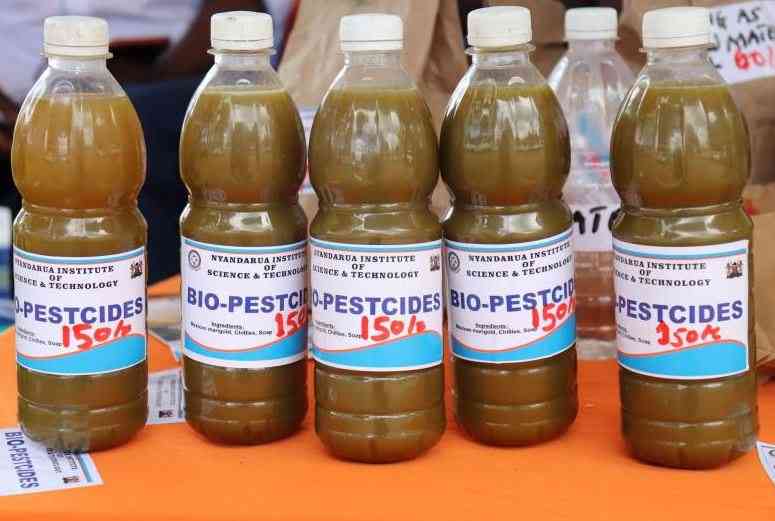Kenya is being encouraged to adopt biopesticides as safer and more sustainable pest control alternatives amid growing concerns over the health and environmental risks posed by synthetic chemicals. The country, still recovering from the devastating 2019–2020 desert locust invasion the worst in 70 years faces increasing pressure to shift from traditional pesticide use to eco-friendly solutions.
Historically, pest control in Kenya has depended heavily on aerial and ground spraying of synthetic pesticides. While this approach delivers quick results, it carries long-term risks to human health, beneficial insects like bees, soil ecosystems, and biodiversity. As these challenges mount, stakeholders are pushing for a new strategy built on nature-based alternatives.
A major step in this direction is the B(Eat) the Locust Project, which champions biopesticides derived from natural sources such as fungi, plants, and bacteria. The initiative promotes these alternatives as not only effective but also non-toxic to pollinators and safe for the environment. The project is active in Isiolo, Marsabit, Samburu, and Laikipia counties, where local communities are being trained in innovative practices such as cricket farming for animal feed and income generation.
Despite the promise of biopesticides, several barriers hinder their widespread use. Chief among them is the absence of a coherent national policy. Current regulations are fragmented, with overlapping testing requirements from various agencies, often stretching the registration process for biopesticide products to over a decade. In contrast, some countries like India manage to complete the process within six months.
Insect-based feed and farming are gaining traction as climate-resilient strategies, particularly in Kenya’s arid and semi-arid regions. With favorable temperatures for insect rearing, northern Kenya holds great potential for scaling these innovations, supporting both livelihoods and food security.
A recent national workshop brought together researchers, civil society, private sector players, and policymakers to discuss strategies for developing a National Biopesticide Policy. Key issues included easing registration procedures, certifying agro-dealers, educating farmers, and creating market incentives to support adoption.
As climate change and chemical overuse intensify, the need for sustainable pest management is more urgent than ever. The call is clear: Kenya must act swiftly to put in place strong policies that protect its farmers, food systems, and ecosystems.

